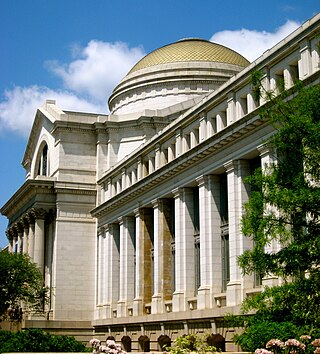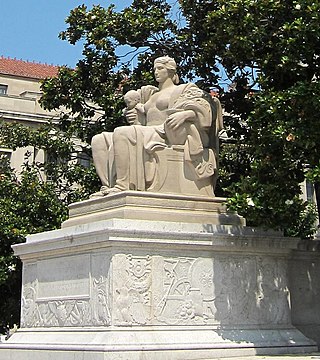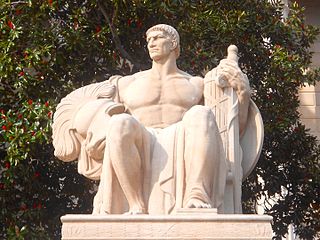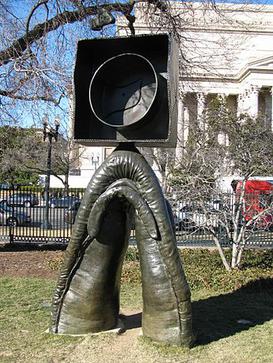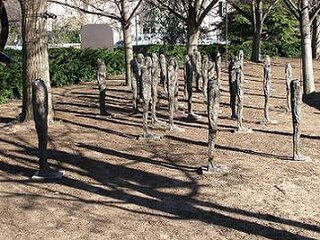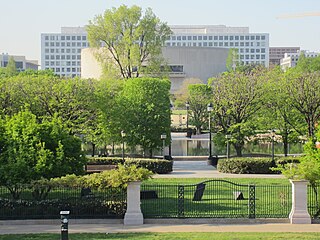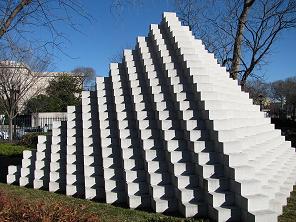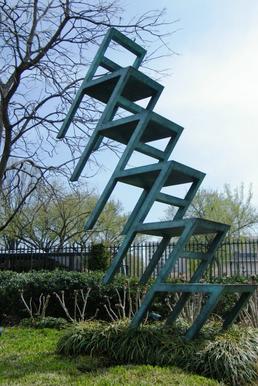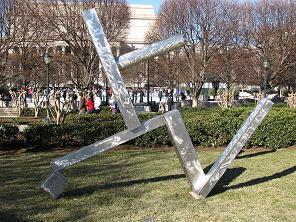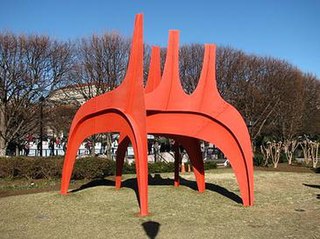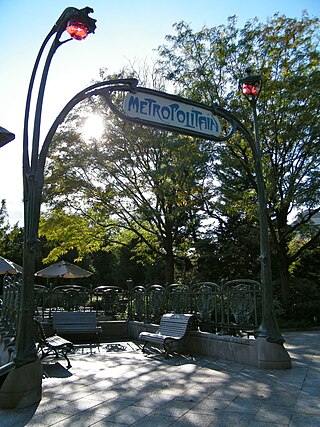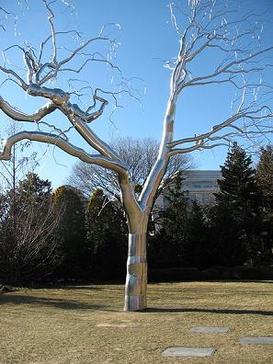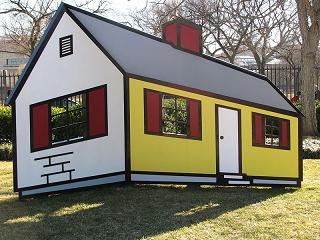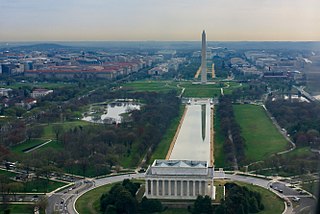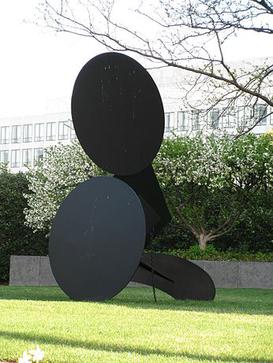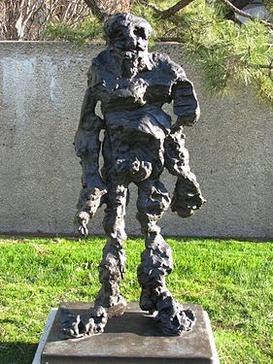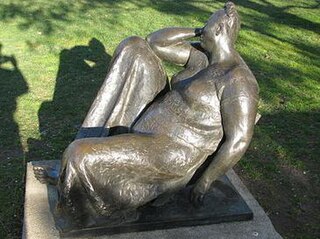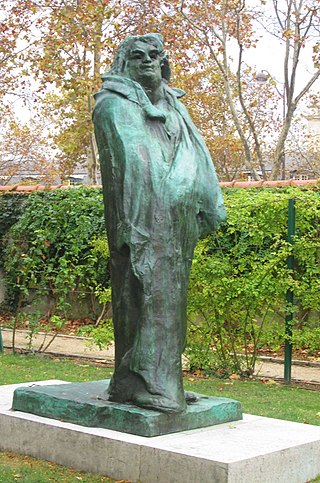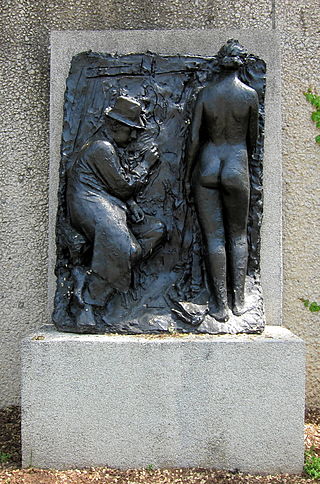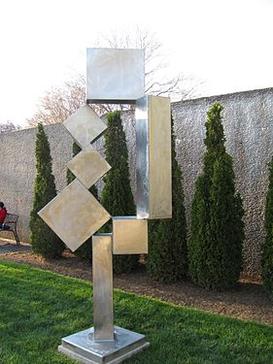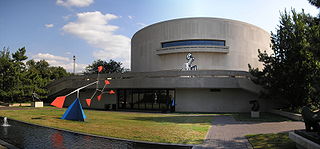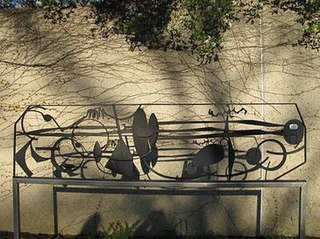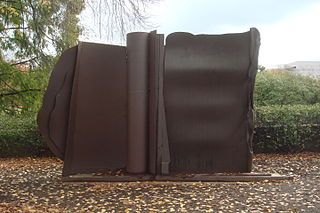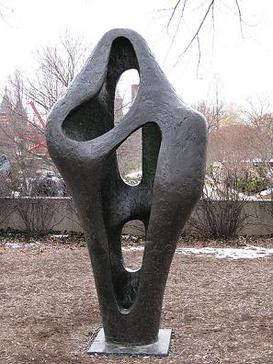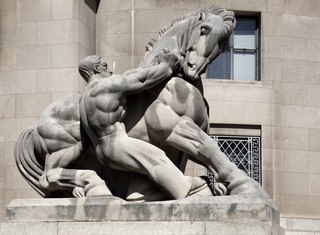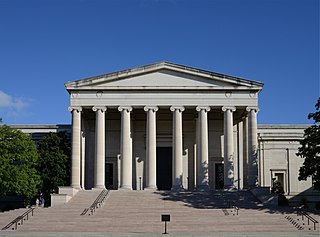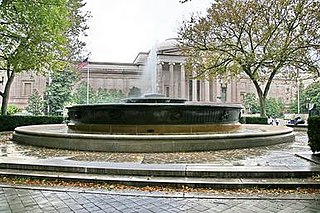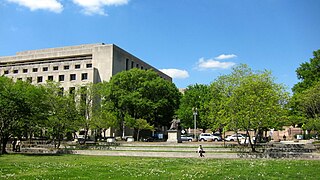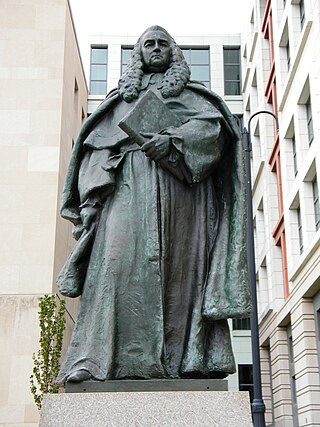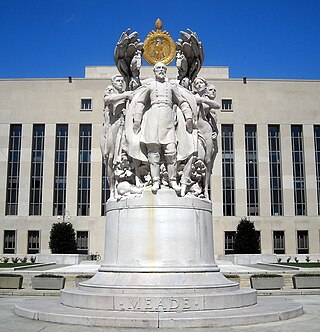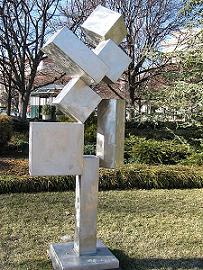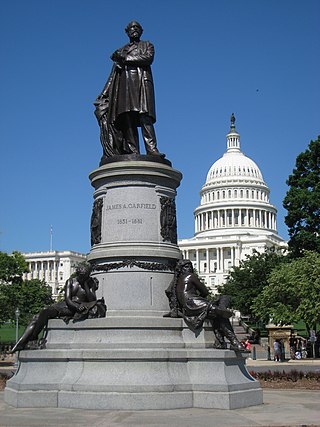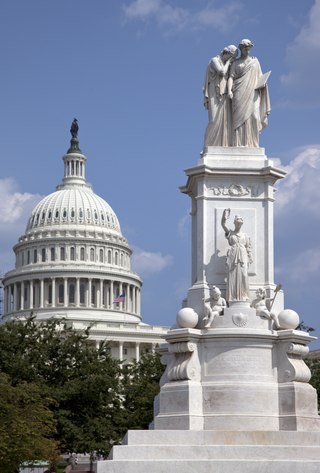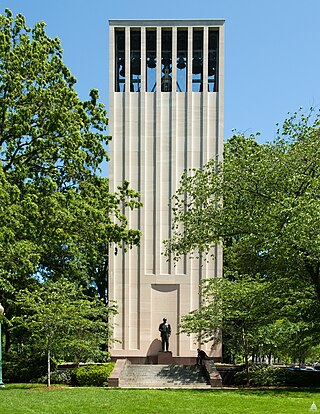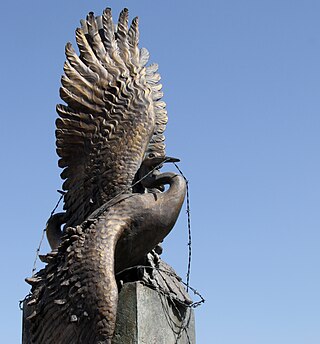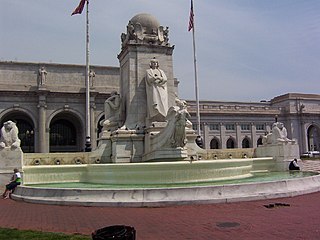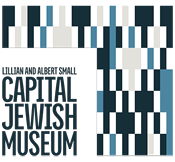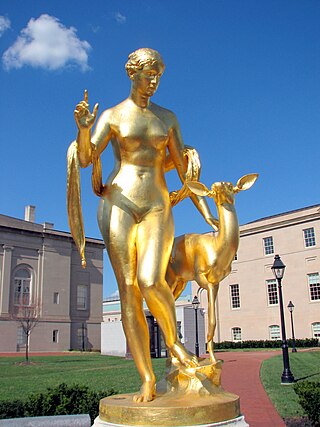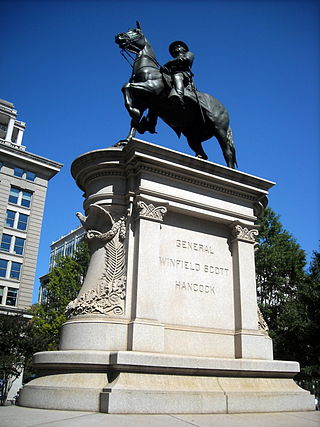Self-guided Sightseeing Tour #2 in Washington, United States
Legend
Tour Facts
7.2 km
174 m
Experience Washington in United States in a whole new way with our free self-guided sightseeing tour. This site not only offers you practical information and insider tips, but also a rich variety of activities and sights you shouldn't miss. Whether you love art and culture, want to explore historical sites or simply want to experience the vibrant atmosphere of a lively city - you'll find everything you need for your personal adventure here.
Individual Sights in WashingtonSight 1: National Museum of Natural History
The National Museum of Natural History (NMNH) is a natural history museum administered by the Smithsonian Institution, located on the National Mall in Washington, D.C., United States. It has free admission and is open 364 days a year. With 4.4 million visitors in 2023, it was the third most-visited museum in the United States.
Wikipedia: National Museum of Natural History (EN), Website, Facebook
Sight 2: Captain Nathan Hale Sculpture
Statue of Nathan Hale may refer to:Statue of Nathan Hale (Chicago) Statue of Nathan Hale
Sight 3: Heritage Sculpture
Heritage is an outdoor 1935 sculpture by American artist James Earle Fraser, installed in front of the National Archives Building in Washington, D.C., United States. Heritage is a companion piece to Guardianship.
Sight 4: Guardianship Sculpture
Guardianship is an outdoor 1935 sculpture by American artist James Earle Fraser, installed in front of the National Archives Building in Washington, D.C., United States. Guardianship is a companion piece to Heritage.
Sight 5: Six-Part Seating
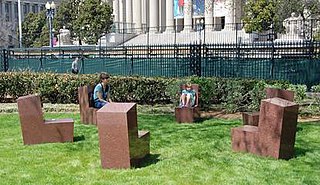
Six-Part Seating is a sculpture by Scott Burton, installed at the National Gallery of Art Sculpture Garden in Washington, D.C. The work, conceived in 1985 and fabricated in 1998, consists of six polished red granite seats that can be arranged in a circle or side by side. The seats weigh approximately 1500 pounds each. Visitors are welcome to sit on the seats. The work was given to the National Gallery of Art by the Collectors Committee.
Sight 6: Aurora
An aurora is a natural light display in the sky on Earth seen predominantly in the high latitudes.
Sight 7: Gothic Personage, Bird-Flash
Personnage Gothique, Oiseau-Eclair is a bronze sculpture by Joan Miró.
Sight 8: Puellae
Puellae is a bronze sculpture by Magdalena Abakanowicz.
Sight 9: National Gallery of Art Sculpture Garden
The National Gallery of Art Sculpture Garden is the most recent addition to the National Gallery of Art in Washington, D.C. in the United States. It is located in the National Mall between the National Gallery's West Building and the Smithsonian Institution's National Museum of Natural History.
Sight 10: Moondog
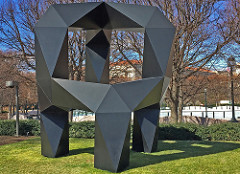
Moondog is a minimalist sculpture created by Tony Smith in 1964. The piece is composed of 15 octahedra and 10 tetrahedra, and while perfectly ordered and symmetrical when seen from certain angles, it carries a strong tilt forward when seen from other angles. This is the third of an edition of three in the series.
Sight 11: Four-Sided Pyramid
Four-Sided Pyramid is a conceptual modular "structure", by Sol LeWitt, in the National Gallery of Art Sculpture Garden.
Sight 12: Chair Transformation Number 20B
Chair Transformation Number 20B is a 1996 abstract sculpture, by Lucas Samaras, in the National Gallery of Art Sculpture Garden.
Sight 13: Cubi XXVI
Cubi XXVI is an abstract sculpture by David Smith, in the National Gallery of Art Sculpture Garden in Washington, D.C., US.
Sight 14: Cheval Rouge
Cheval Rouge is an abstract sculpture by Alexander Calder.
Sight 15: An Entrance to the Paris Métropolitain
An Entrance to the Paris Métropolitain is a sculpture by Hector Guimard, conceived in 1902 and fabricated between 1902 and 1913. Guimard designed 141 entrances to the Paris Métro of varying types, 86 of which are still standing. One is featured at the National Gallery of Art Sculpture Garden in Washington, D.C.
Sight 16: Graft
Graft is a sculpture by Roxy Paine. It was installed on October 26–30, 2008, in the National Gallery of Art Sculpture Garden.
Sight 17: House I
House I is a sculpture by Roy Lichtenstein. It has an illusion, which makes it appear inside out, or normally, depending on which way the viewer sees it.
Sight 18: The Mall
The National Mall is a landscaped park near the downtown area of Washington, D.C., the capital city of the United States. It contains and borders a number of museums of the Smithsonian Institution, art galleries, cultural institutions, and various memorials, sculptures, and statues. It is administered by the National Park Service (NPS) of the United States Department of the Interior as part of the National Mall and Memorial Parks unit of the National Park System. The park receives approximately 24 million visitors each year. Designed by Pierre L'Enfant, the "Grand Avenue" or Mall was to be a democratic and egalitarian space—unlike palace gardens, such as those at Versailles in France, that were paid for by the people but reserved for the use of a privileged few.
Sight 19: Geometric Mouse
Geometric Mouse, Variation I, Scale A is an abstract sculpture by Claes Oldenburg. created in 1971.
Sight 20: Horse and Rider
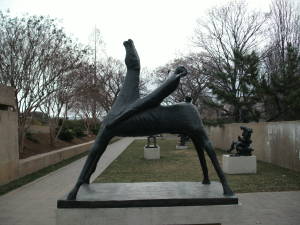
Horse and Rider is a modern equestrian bronze sculpture by Marino Marini. Executed in 1952–1953, it is located at the Hirshhorn Museum and Sculpture Garden.
Sight 21: Seated Woman on a Bench
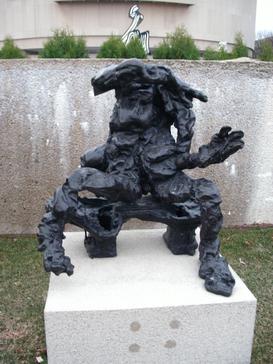
Seated Woman on a Bench is a bronze sculpture by Willem de Kooning. Modeled in 1972, it was cast in 1976. It is at the Hirshhorn Museum and Sculpture Garden, in Washington, D.C..
Sight 22: Clamdigger
Clamdigger is a bronze sculpture by Willem de Kooning. It may have been inspired by "the men who dug for clams along the beaches" near his home in East Hampton, New York. It has been described as one of his "extraordinarily tactile figurative sculptures" that "seemed pulled from the primordial ooze," and "as part man, part creature of the mud and the shallows."
Sight 23: Seated Yucatan Woman
Seated Yucatán Woman is a bronze sculpture, by Francisco Zúñiga. It is an edition of four, one of which is located at the Hirshhorn Museum and Sculpture Garden.
Sight 24: Monument to Balzac
Monument to Balzac is a sculpture by Auguste Rodin in memory of the French novelist Honoré de Balzac. According to Rodin, the sculpture aims to portray the writer's persona rather than a physical likeness. The work was commissioned in 1891 by the Société des Gens de Lettres and a full-size plaster model was displayed in 1898 at a Salon in Champ de Mars. After coming under criticism the model was rejected by the société and Rodin moved it to his home in Meudon. On 2 July 1939 the model was cast in bronze for the first time and placed on the Boulevard du Montparnasse at the intersection with Boulevard Raspail.
Sight 25: Self-Portrait with Model at Bergamo
Self-Portrait with Model at Bergamo is a bronze sculpture by Giacomo Manzù, originally modeled in 1942. One cast, made by 1960, is located at the Hirshhorn Museum and Sculpture Garden of the Smithsonian Institution in Washington D.C..
Sight 26: Cubi XII
Cubi XII is an abstract sculpture by David Smith.
Sight 27: Hirshhorn Sculpture Garden
The Hirshhorn Museum and Sculpture Garden is an art museum beside the National Mall in Washington, D.C., United States. The museum was initially endowed during the 1960s with the permanent art collection of Joseph H. Hirshhorn. It was designed by architect Gordon Bunshaft and is part of the Smithsonian Institution. It was conceived as the United States' museum of contemporary and modern art and currently focuses its collection-building and exhibition-planning mainly on the post–World War II period, with particular emphasis on art made during the last 50 years.
Sight 28: Pittsburgh Landscape
Pittsburgh Landscape is a 1954 painted steel abstract sculpture, by David Smith. It is in the Hirshhorn Museum and Sculpture Garden.
Sight 29: Lunar Bird
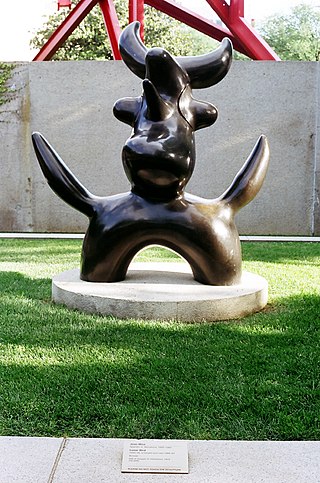
Lunar Bird is an abstract bronze sculpture by Joan Miró. It was modeled in 1945, enlarged in 1966, and cast in 1967.
Sight 30: Monsoon Drift
Monsoon Drift is an abstract steel sculpture, by Anthony Caro.
Sight 31: Figure for Landscape
Figure for Landscape is a bronze sculpture by Barbara Hepworth, modeled in 1960.
Sight 32: Man Controlling Trade
Man Controlling Trade is the name given to two monumental equestrian statues created by Michael Lantz for the Federal Trade Commission Building in Washington, D.C. under the United States Department of the Treasury Section of Painting and Sculpture. The works were dedicated in 1942. Each of the two limestone groups is approximately 12 feet tall and 16 feet long.
Sight 33: National Gallery of Art
The National Gallery of Art is an art museum in Washington, D.C., United States, located on the National Mall, between 3rd and 9th Streets, at Constitution Avenue NW. Open to the public and free of charge, the museum was privately established in 1937 for the American people by a joint resolution of the United States Congress. Andrew W. Mellon donated a substantial art collection and funds for construction. The core collection includes major works of art donated by Paul Mellon, Ailsa Mellon Bruce, Lessing J. Rosenwald, Samuel Henry Kress, Rush Harrison Kress, Peter Arrell Browne Widener, Joseph E. Widener, and Chester Dale. The Gallery's collection of paintings, drawings, prints, photographs, sculpture, medals, and decorative arts traces the development of Western art from the Middle Ages to the present, including the only painting by Leonardo da Vinci in the Americas and the largest mobile created by Alexander Calder.
Sight 34: Andrew Mellon Memorial Fountain
The Andrew W. Mellon Memorial Fountain is a bronze fountain sculpture by Sidney Waugh as a memorial to Andrew W. Mellon. It is located at the eastern tip of the Federal Triangle within the intersection of Pennsylvania Avenue, Constitution Avenue, and 6th Street NW in Washington D.C., United States. The fountain is across Constitution Avenue from the West Building of the National Gallery of Art. The Department of the Interior maintains the fountain, which President Harry S. Truman dedicated on May 9, 1952.
Sight 35: John Marshall Place Park
John Marshall Park is a park located in the Judiciary Square neighborhood of Washington, D.C. The park is in honor of John Marshall, a U.S. Representative (1799-1800), Secretary of State (1800-1801), and the fourth Chief Justice of the Supreme Court (1801–1835).
Sight 36: Sir William Blackstone Statue
Sir William Blackstone is a bronze statue by Paul Wayland Bartlett of the English legal scholar William Blackstone. It is located at E. Barrett Prettyman United States Courthouse, at 333 Pennsylvania Avenue in northwest Washington, D.C., in the Judiciary Square neighborhood. It was installed on August 11, 1943.
Sight 37: George Gordon Meade Memorial
The George Gordon Meade Memorial, also known as the Meade Memorial or Major General George Gordon Meade, is a public artwork in Washington, D.C. honoring George Meade, a career military officer from Pennsylvania who is best known for defeating General Robert E. Lee at the Battle of Gettysburg. The monument is sited on the 300 block of Pennsylvania Avenue NW in front of the E. Barrett Prettyman United States Courthouse. It was originally located at Union Square, but was removed and placed in storage for fourteen years before being installed at its current location. The statue was sculpted by Charles Grafly, an educator and founder of the National Sculpture Society, and was a gift from the state of Pennsylvania. Prominent attendees at the dedication ceremony in 1927 included President Calvin Coolidge, Governor John Stuchell Fisher, Secretary of the Treasury Andrew W. Mellon, and Senator Simeon D. Fess.
Sight 38: Cubi XI
Cubi XI is an abstract sculpture by David Smith. It is a part of the Cubi series of sculptures.
Sight 39: James A. Garfield Monument
The James A. Garfield Monument stands on the grounds of the United States Capitol in Garfield Circle, a traffic circle at First Street and Maryland Avenue SW in Washington, D.C. It is a memorial to U.S. President James A. Garfield, who was elected in 1880 and assassinated in 1881 after serving only four months of his term. The perpetrator was an attorney and disgruntled office-seeker named Charles J. Guiteau. Garfield lived for several weeks after the shooting, but eventually succumbed to his injuries. The monument is part of a three-part sculptural group near the Capitol Reflecting Pool, including the Peace Monument and the Ulysses S. Grant Memorial in Union Square. The monument is also a contributing property to the National Mall and L'Enfant Plan, both of which are listed on the National Register of Historic Places and the District of Columbia Inventory of Historic Sites. The bronze statue rests on a granite pedestal that features three sculptures, each one representing a time period in Garfield's life.
Sight 40: Peace Monument
The Peace Monument, also known as the Navy Monument, Naval Monument or Navy-Peace Monument, stands on the western edge of the United States Capitol Complex in Washington, D.C. It is in the middle of Peace Circle, where First Street and Pennsylvania Avenue NW intersect. The surrounding area is Union Square, which the monument shares with the Ulysses S. Grant Memorial, James A. Garfield Monument, and the Capitol Reflecting Pool. The front of the monument faces west towards the National Mall while the east side faces the United States Capitol.
Sight 41: Robert A. Taft Memorial
The Robert A. Taft Memorial and Carillon is a carillon in Washington, D.C. dedicated as a memorial to U.S. Senator Robert Alphonso Taft, son of President William Howard Taft.
Sight 42: Acacia Griffins
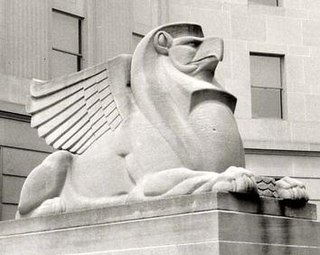
Acacia Griffins are public artworks by American sculptor Edmond Amateis, located at the Acacia Building at 51 Louisiana Avenue N.W., in Washington, D.C., United States.
Sight 43: Japanese American Memorial
The Japanese American Memorial to Patriotism During World War II is a National Park Service site to commemorate the contributions of American citizens of Japanese ancestry and their parents who patriotically supported the United States despite unjust treatment during World War II.
Wikipedia: Japanese American Memorial to Patriotism During World War II (EN)
Sight 44: Union Station Plaza
Columbus Circle, also known as Union Station Plaza or Columbus Plaza, is a traffic circle at the intersection of Delaware, Louisiana and Massachusetts Avenues and E and First Streets, Northeast in Washington, D.C. It is located in front of Union Station right next to the grounds of the United States Capitol. Union Station and its access roads interrupt this circle on one side, forming an arc.
Sight 45: American Legion Freedom Bell
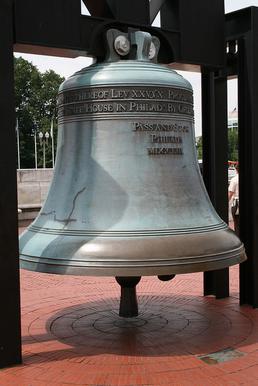
Freedom Bell, American Legion, is a public artwork located at Union Station in Washington, D.C., United States. A replica of the Liberty Bell, Freedom Bell, American Legion was surveyed as part of the Smithsonian's American Art Museum's Inventories of American Painting and Sculpture database in 1985.
Sight 46: National Guard Memorial Museum
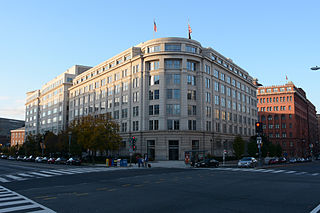
The National Guard Memorial Museum is a military museum hosted by the National Guard Educational Foundation. It is located in northwestern Washington, DC, near the National Postal Museum, Union Station and Georgetown University Law Center. Covering 5600 square feet, the museum features six different thematic galleries all relating to the National Guard of the United States:Militia Era The National Guard Comes of Age The Citizen Soldier in World War II Cold War Era National Guard in the Modern Era Closing Sequence.
Sight 47: Capital Jewish museum
The Capital Jewish Museum, officially the Lillian & Albert Small Capital Jewish Museum, is a historical society and museum in Washington, D.C., focused on the history of Jewish life in the American capital city and the surrounding Washington metropolitan area.
Wikipedia: Lillian & Albert Small Capital Jewish Museum (EN)
Sight 48: National Law Enforcement Officers Memorial

The National Law Enforcement Officers Memorial is in Washington, D.C., at Judiciary Square, adjacent to the National Law Enforcement Museum. It honors 23,785 U.S. law enforcement officers who have died in the line of duty throughout American history. The National Law Enforcement Officers Memorial Fund (NLEOMF) was established by former US Representative Mario Biaggi (D-NY), a 23-year New York City police veteran.
Wikipedia: National Law Enforcement Officers Memorial (EN), Website
Sight 49: Joseph Darlington Memorial Fountain
The Darlington Memorial Fountain, also known as the Joseph Darlington Fountain, Nymph and Fawn, and Darlington Fountain, is a sculpture by C. Paul Jennewein atop a fountain in honor of Joseph James Darlington. It is located at Judiciary Park, where 5th Street, D Street, and Indiana Avenue NW intersect in the Judiciary Square neighborhood of Washington, D.C. The fountain is surrounded on three sides by government buildings, including the United States Court of Military Appeals, the H. Carl Moultrie Courthouse, and the former District of Columbia City Hall.
Sight 50: General Winfield Scott Hancock
General Winfield Scott Hancock is an equestrian statue of Winfield Scott Hancock, by Henry Jackson Ellicott together with architect Paul J. Pelz. It is located at Pennsylvania Avenue in United States Navy Memorial Park at the northwest corner of 7th Street, Northwest, Washington, D.C.
Share
How likely are you to recommend us?
Disclaimer Please be aware of your surroundings and do not enter private property. We are not liable for any damages that occur during the tours.
GPX-Download For navigation apps and GPS devices you can download the tour as a GPX file.
